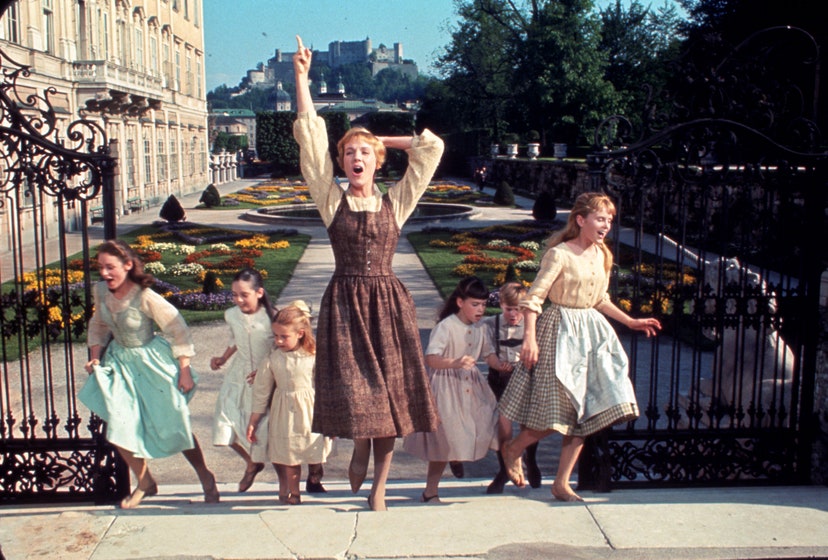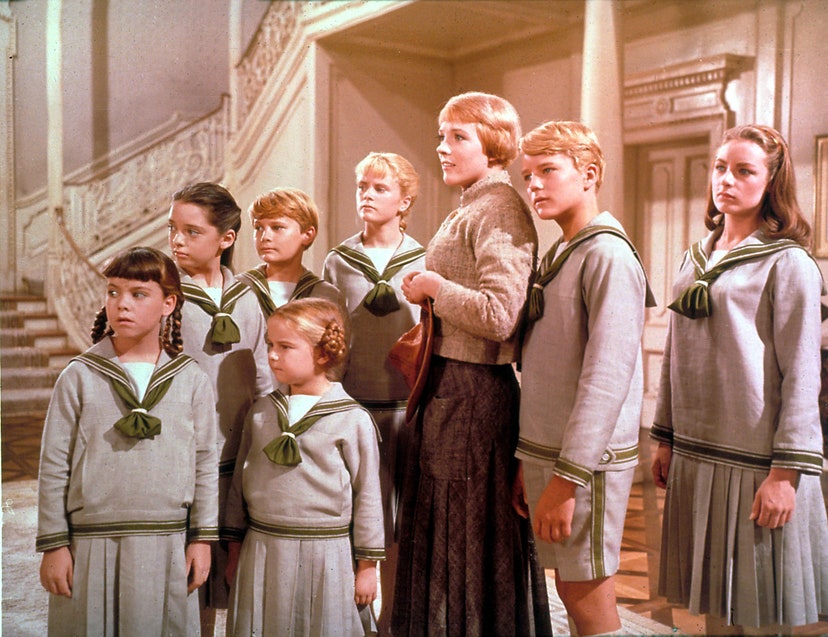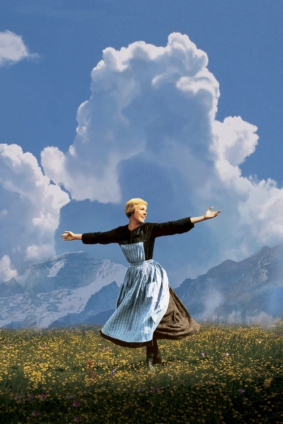As Christopher Plummer passes away at the age of 91, revisit some of the wildest stories from the production of his best-loved film.
It originally had a far less memorable title
The Broadway version of The Sound of Music – which opened to tepid reviews in 1959 – represented the final collaboration between Rodgers and Hammerstein, the musical theatre geniuses behind American classics such as Oklahoma!, South Pacific, and The King and I.
(In fact, “Edelweiss” is the last song that Hammerstein wrote before dying of cancer in 1960.)
The duo originally planned to call their musical adaptation of Maria Von Trapp’s memoir Love Song – until their lawyer pointed out that it would be a copyright nightmare.
Eventually, they settled on The Sound of Music instead, a title borrowed by the 1965 film.

The production witnessed a number of serious accidents
Few Hollywood scenes are more iconic than a carefree Julie Andrews whirling around an alpine meadow while singing “The Hills Are Alive With The Sound Of Music”.
In reality, however, the number proved incredibly difficult to capture – with the filming helicopter repeatedly knocking Andrews to the ground. “The helicopter circled around me and the downdraft just flattened me into the grass,” she recalled in an interview with the American Film Institute in 2009. “And I mean flattened.
It was fine for a couple of takes, but after that, you begin to get just a little bit angry… I mean, I braced myself, I thought, ‘It’s not going to get me this time.’ And every single time, I bit the dust.”
Meanwhile, during the scene in which the Von Trapp's boat capsizes, Andrews struggled to fish Kym Karath (Gretl), who could barely swim, out of the water, with Heather Menzies (Louisa) ultimately having to rescue her from drowning.
It nearly featured a markedly different cast
When Hollywood first began considering an English-language film about the Von Trapps, the powers that be had Audrey Hepburn in mind for the starring role. Other strong contenders for the female lead? Doris Day and Anne Bancroft – best known as Mrs Robinson in The Graduate (1968).
Moreover, when the studio finally offered Julie Andrews the part, she nearly turned it down – fearing that the character would be too similar to the one she had just played in Mary Poppins (1964).
For the role of Captain von Trapp, on the other hand, Christopher Plummer beat out Bing Crosby, Rex Harrison, and Sean Connery – while Mia Farrow nearly landed the role of Liesl over Charmian Farnon.
Much of the plot is, in fact, fictional
Inevitably, Hollywood took some liberties with Maria Von Trapp’s The Story Of The Trapp Family Singers. While the Austrian family did escape from the Nazis with just a knapsack each, their flight involved catching a train to South Tyrol in Italy rather than climbing through the Alps into Switzerland on foot.
(As many critics have pointed out before, the Swiss border is actually 100 miles away from Salzburg.) Perhaps the movie’s most notable fictional embellishment, however, are 16-year-old Leisl and her Nazi boyfriend Rolf.
In reality, the oldest Von Trapp child happened to be a boy named Rupert – a 54-year-old doctor living in America by the point of the film’s release. Fortunately, he had a good sense of humour. When asked for his name by The Sound of Music fans, he consistently replied with Leisl, accompanied by a demure curtsy.

It got Joan Didion, and a number of other high-profile critics, fired
While The Sound of Music proved a massive commercial success – it remains the highest-grossing musical ever committed to film – a number of critics skewered it upon release, losing their jobs in the process.
Pauline Kael, later a New Yorker staffer and one of the most influential film critics in the world, panned it as the “sugar-coated lie that people seem to want to eat”, resulting in her being fired from McCall’s magazine.
Similarly, in her film column for American Vogue, Joan Didion raged against the suggestion that “history need not happen to people”, that one might just “whistle a happy tune, and leave the Anschluss behind”, with her contract terminated soon afterwards as a result.
Latest Stories
-
Ejisu by-election: Independent ex-NPP MP’s campaign team warns party against dubious tactics
9 mins -
ZEN Petroleum supports Tse-Addo Future Leaders School
55 mins -
NPP must win back Adentan seat in 2024 polls – Obeng Fosu
1 hour -
PPA Clarification: The dark side of the World Bank’s ‘giveaways’ in Ghana by Bright Simons
2 hours -
Blinken says China helping fuel Russian threat to Ukraine
3 hours -
MHA declares May as Purple Month for Mental Health Awareness
3 hours -
WAEC arrests former headmaster over illegal students registration
3 hours -
MeToo founder Tarana Burke defiant after Harvey Weinstein ruling
3 hours -
Be alert, insist on decent messages – Dwumfour tells media
4 hours -
Father jailed 10 years for burning daughter’s genitals with hot cutlasses
4 hours -
I aim to help Ghana produce world-class athletes – Asamoah Gyan
4 hours -
Ashanti Regional Minister alleges sabotage in electricity supply
4 hours -
2024 Elections: Dampare urges Ghanaians to prioritise patriotism and display maturity
4 hours -
‘Let it rot’ campaign hits fish prices in Egypt
5 hours -
Otumfuo chalks 25 years on Golden Stool today
5 hours

